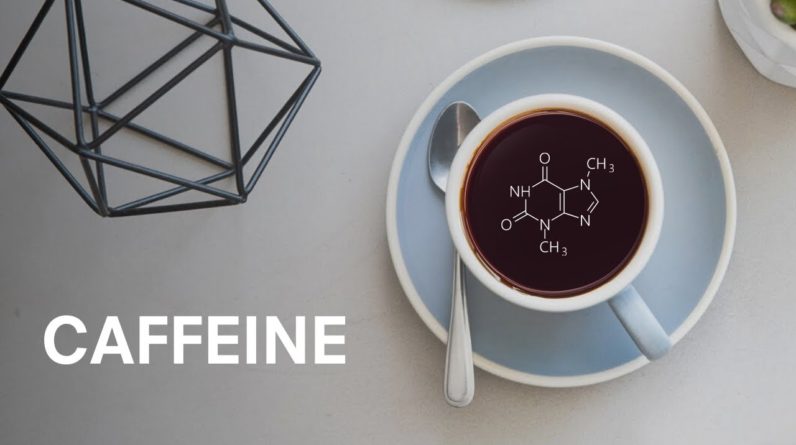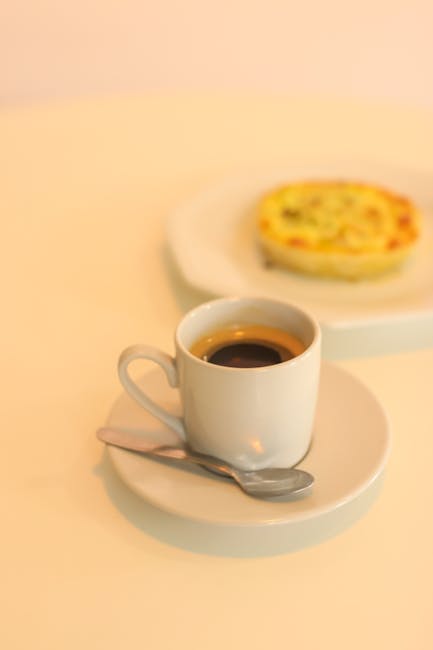
According to the U.S.
Department of Defence, the best time to drink a coffee
is not when you first wake up. To get the full benefit of caffeine,
you need to wait a little bit, but wait until when? We'll
explain right after this… Hey, it's Adam Carr here from the coffee
science and education center here at Seven Miles Coffee Roasters. So today
we're gonna look at caffeine, as you can imagine, as a coffee roaster, we get a lot of questions about caffeine, how much caffeine is in this particular
coffee? What about brewed coffee? What about espresso coffee?
As a chemical engineer myself, I have a vested interest in
how much caffeine is in coffee, and in the chemistry of coffee more
broadly.
And as you can imagine, there's a lot of literature out there
that talks about caffeine and its impact on our lives. So we dug through that research and we're
going to present those findings today. So what is the ideal time to drink coffee? The U.S. Department of Defence recommends
between nine o'clock and 10 o'clock in the morning. The reason being that you get the maximum
impact of caffeine in terms of how it functionally affects you, and you minimize
the effect of caffeine on your sleep. So you get the most possible rest
and the best possible energy boost, lots of other research out there showing
that actually the impacts of caffeine vary based on when you yourself regularly
consume caffeine. Also, similarly, you getting a caffeine headache will
depending on how much coffee you regularly drink and the time of
day that you drink it. So it's reasonably complicated as
you'd expect when it comes to anything interacting with your body, and
everyone's body being different.
But that's what the department of
defence has to say about it at least. So how much caffeine is safe to drink? So the first big finding that we
found was from an Australian group of researchers down in Melbourne, a group of doctors who had a
look at the impact of caffeine. How many cups of coffee it took to
measurably change someone's heart rate? Cause that is one of the impacts that
over consumption of caffeine can have. And they found that it took at least
eight and a half cups of coffee, espresso level coffee for it to have
any kind of appreciable effect on the heart.
It was not measurable up to, and
even a little bit beyond that point. The other way of doing this is to look
at the safety data sheets of caffeine. So to get the equivalent amount of
caffeine that you could get from coffee, to that toxic limit, you need
to drink about 25 liters of filter coffee. As you can imagine,
I don't think you'd hold the cup. So the next question is:
does caffeine extract first? And this is a question
that we've had a few times, or at least it's a statement I've
heard a few times in the industry. We refer specifically to espresso here, although technically it should
hold also for filter coffee. So no, not specifically caffeine seems to
extract consistently across the entire extraction.

And actually you only extract about 20%
of the caffeine available in coffee. In other words, after you've finished
your extraction, both espresso and filter, you have about 80% of the caffeine
still left inside the coffee grounds. It seems that only about 20% is
available to be extracted from coffee. So while running it longer does increase
the amount of caffeine in the cup, you get it across the entire extraction.
So no, it's not extracted first per se. Does decaf coffee contain
caffeine? Yes, it does. It's as we talked about just before, it's very hard to remove all of the
caffeine from coffee, even with very, very selective and specific
extraction processes. That said, most decaf coffees contain about between
about one and 10% of the residual caffeine, inside the coffee,
again depending on the method. That's still a lot less caffeine
that's available in coffee beforehand, and actually it's about the same
amount as in as in a hot chocolate.
So clearly won't affect you as much
as a regular caffeinated coffee or tea for that matter. Espresso has a high concentration
of coffee, but per serve, a batch brewed coffee, that
is plunger or filter coffee, because you drink more of it per cup
actually has more caffeine in it. Normally it's comparing about 80
milligrams of coffee and a double shot of espresso versus about 125
milligrams in a plunger coffee. The caveat to all this is it all also
depends on your recipe and whether you have Robusta in your coffee and whole
host of other things and how much water you put into the dose. So, you
know, it varies quite significantly.
So what it says online, 80 milligrams per double shot may
in fact be a hundred milligrams. It could also be 70 milligrams. It
depends quite heavily on your recipe. So the last question we want
to tackle here today is, what kind of roast style
coffee has more caffeine? Traditionally people say because
dark roasted coffee tastes stronger, it's got more caffeine. I've also
heard the opposite where people say, because it's been roasted darker, the
caffeine has been removed from the coffee, cause it literally chemically destroys
it. To the last point first, it doesn't. Caffeine is what's considered
a refractory molecule. So the amount of caffeine
per gram of solids coffee is identical between light, medium
and dark roasted coffee. Secondly, as far as I've been able to find, the caffeine content between
each of those coffees, assuming all of the origins
are the same for those coffees, is identical between light,
medium and dark roasted coffee. The solubility of caffeine
seems to be unaffected, or very, very smally effected by the presence
of other coffee compounds in there.
For sure, dark roasted
coffee does taste stronger. It has been roasted longer and the
material in that coffee is more soluble. So it is stronger, but not in caffeine. So I hope this has been helpful. If you
know more, if you've got any questions, if you've got any ideas
and discussion points, feel free to leave some comments below. We'll also put some links to the research
pieces that we found that informed this work. So until
next time see you later..







